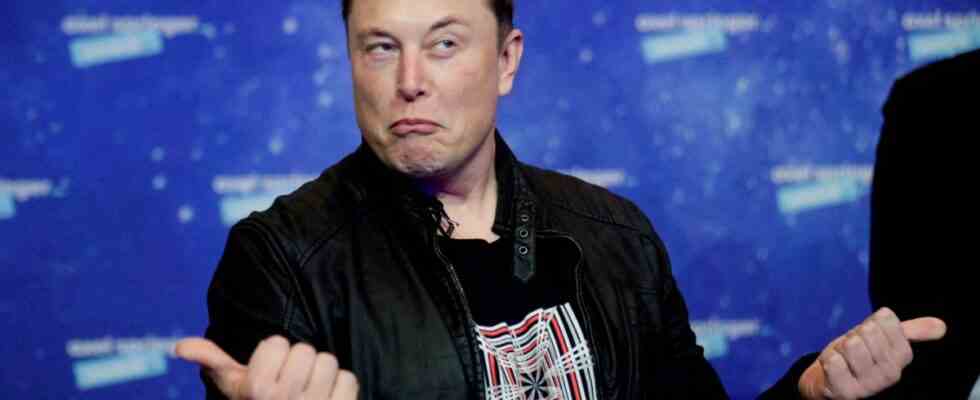What a thigh slap: “Next, I’ll buy Coca-Cola and put the cocaine back in.” If Elon Musk, who is believed to be the richest person in the world, had made a deal with any tech company on Monday, what always happened would have happened: people would have laughed at the joking tweet and also admired it a bit, as Musk keeps saying the media creates. But now he’s bought Twitter, the social network, and quite a few people are choking on laughter. They fear that freedom of expression, which Musk cited as a reason to buy, could bring hate and hate speech back to Twitter, especially from the right.
In the black community in the USA, for example, a minority traditionally strongly represented on Twitter, people are seriously considering leaving Twitter. Without the mostly dedicated members of #BlackTwitter, there would be a fair bit less activity on the platform, and the new owner doesn’t need that at all. He said before the deal that he didn’t care about the economic aspect at all. But that is the public facade.
In the harsh reality behind it, Musk must be interested in the fact that Twitter is far less economically successful than other social networks. This is confirmed by the latest quarterly figures published on Thursday. Although Twitter has increased the number of daily active users compared to the first quarter of the previous year, by at least 16 percent to 229 million. But that was just under three million more than analysts had expected.
Other social networks also grew weaker in sales
And when it comes to revenue, things continue to look bleak. The 16 percent increase in sales to $1.2 billion was the smallest in six quarters and was below expectations. Not all of this is entirely the fault of Twitter management. Other social networks also saw weaker sales growth, the analysts suspect as a reason general reluctance to spend on advertising due to supply chain problems, inflation and the war in Ukraine. But that doesn’t change the fact that Twitter, in contrast to its prominent socio-political importance, reaches far fewer people than competitors like Facebook, Whatsapp, Instagram, Snapchat and whatever they’re called.
So Musk and the people who will run Twitter in the future have a lot of work to do. The debt that Musk had to take on to buy the network alone is more than $1 billion a year, and Musk probably won’t want to take it out of his own pocket. For which he would have to sell shares in Tesla or Space X anyway – after all, these papers are what make Musk’s wealth.
The fact that Musk is planning something with Twitter had been an issue for months before the Twitter bosses’ decision on Monday. The charismatic entrepreneur has been buying shares for some time, most recently he owned a nine percent stake in Twitter. But they didn’t want him there at first. The Board even implemented a scheme called poison pill (poison pill) in force. Had Musk owned more than 15 percent of the shares, other shareholders could have bought shares on more favorable terms.
But when Musk finally came around the corner last weekend with a worked out financing plan, the board of directors and board of directors caved in on Twitter. As employees of a listed company, they too are ultimately committed to the shareholders, and Musk is now paying them around seven dollars more per share than it is currently worth.
To create the plan, Musk’s team had been working frantically for the week prior, speaking to banks to raise money for the deal. Under the leadership of the major bank Morgan Stanley, other institutions such as BNP Paribas and Société Générale were finally convinced to take part in the deal.
But Elon Musk bears the greatest risk himself. If the takeover fails, for example because shareholders refuse or because it doesn’t work out economically, his reputation as a kind of superhero would at least be cracked. A number of lawsuits based on Musk’s idea to take the automaker he runs before the stock market could also contribute to this. A judge recently called one of his tweets – that the funding was secured – a lie. Musk should therefore hold back on tweets in the near future.

